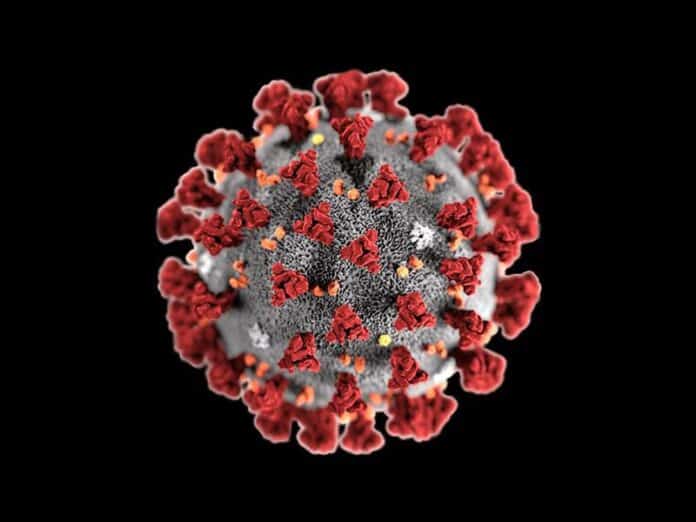Editor’s note: We’ve been asking local people who have been diagnosed with COVID-19 (so far, 89 of them since March) if they would share their stories so that we could understand how it is affecting people differently. This is the fourth story in an occasional series. If you would like to share yours, please call 812-988-2221 or email new[email protected].
The morning of July 20, Elizabeth Grubbs woke up with a headache and a temperature of 103. She figured it out on her own: She had the coronavirus.
Grubbs, 60, went into self-isolation and called her family physician the next morning. They sent her to a testing center in Bloomington. Before the results had even come back, the doctor told her she had it. She returned to self isolation and received a positive test result two days later.
For 10 days she ran a constant fever, never below 101 degrees and running as high as 103.7.
“I had the headache, loss of smell and taste, nausea, extreme fatigue, oh my goodness,” she said. “I would wake up at 7 a.m. and not be able to get out of bed until 11.”
Doctor’s orders were to take Tylenol and use an inhaler because of the tightness in her chest and shortness of breath she felt with any movement.
Grubbs also has rheumatoid arthritis, which compromises the immune system.
She came out of self-isolation on July 30, after having no symptoms for 24 hours. She spent July 31 with her husband, John. The next day, she noticed he was short of breath.
“He was the type of man who would say he’s fine, that nothing is wrong,” she said.
Her son got a pulse oxide and tested John’s oxygen levels, which were in the 80s.
“I knew then it was time to go to the hospital,” she said.
Tests were run and doctors discovered that John, 87, had pneumonia and sepsis. He was admitted to IU Health on Aug. 1, and on Aug. 4, his coronavirus test result came back positive.
Elizabeth spoke to his doctor at 1 p.m. Aug. 10 and was told that John was stable; the medication they had given him to treat COVID-19 was not making him better or worse.
He passed away later that evening.
“It was shocking,” she said.
John also had a history of breathing difficulties from COPD and lung cancer. He’d finished radiation in December, having “taken care of it,” his wife said. He also had a bit of dementia.
Elizabeth was able to talk to her husband a few times when he was sick. “The whole time he said he wasn’t sick and that he wanted to come home,” she said.
“That’s what was so heartbreaking — I kind of knew that when I took him to the hospital that he wouldn’t come back.”
Elizabeth and John were not the only ones in their family to contract COVID. Her son had it, too. “He is 39, in excellent shape,” she said. “It knocked him on his butt.”
His symptoms were a “horrible cough,” headache, loss of taste and extreme fatigue. The doctor said that the fatigue could last as long as two months.
“Exhaustion comes in spurts,” she said. “You can be fine and be doing things, then all of the sudden, I just need to go lay down. And then you’re fine. It’s just so weird.”
Her son lived in Bloomington at the time, and his symptoms began on July 22. The prior weekend, they had spent the whole weekend together, working on remodeling the Grubbs’ downstairs bathroom.
“We contracted it somewhere …” she said. “We always wore a mask, washed our hands.
“It’s no joke. When I see people in town not wearing masks, I just wanna yell at them.”
John and Elizabeth married in 2000 and moved to Brown County from Columbus, Ohio. John’s son was studying for his Ph.D. at IU and they would come to visit him. In the process, they fell in love with Brown County.
They owned two shops — Patty’s Porch and Babies, Toddlers and More — until they sold them around 2008, when Elizabeth contracted a rare nerve disease.
They had planned to move back to Ohio. When they discovered John’s cancer was back, they decided to stay in Indiana with his doctors.
The doctors were not the only reason they decided to stay. The community that they found in Brown County is what kept them here, especially in this time of need.
“The community’s outpour of offering to help has just been overwhelming,” Grubbs said. “I’ve had family members say that they don’t want to be around us, but the community has been so warm, offering assistance.
“I’ve been so grateful for the offers of help — strangers, people I don’t even know.”
As for avoiding the coronavirus, Grubbs said people just need to “do the math.”
“Wash your hands, stay home if you have any sign of any illness. Don’t question it, don’t second guess it.” She said she had to insist her doctors get her in for an appointment right away because she knew she had it.
“You just can’t wait, because you don’t know,” she said.
Though she’s successfully fought COVID-19 once, she said she’s still going to limit her trips out when fall arrives and the flu comes in, not knowing how bad the combination of illnesses may be.
“I definitely don’t want this again,” she said.





